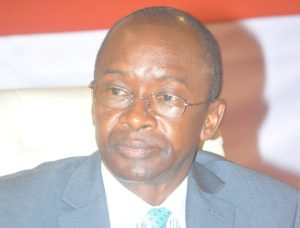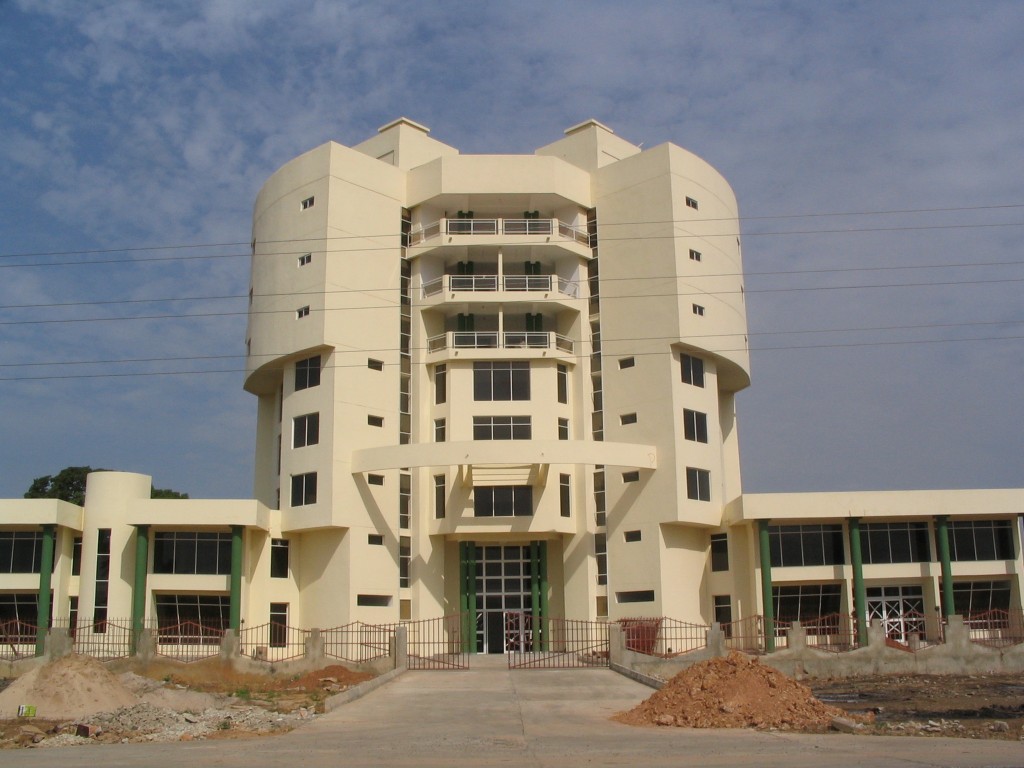By Kebba Ansu Manneh
Justice Cherno Jallow, Chairperson of the Constitutional Review Commission (CRC) has disclosed to The Gambia Times that the Futurelec Building where the Commission operates costs D200,000.00 (two hundred thousand dalasis) per annum to rent.
He made this disclosure on the sidelines of a four days training of staff of the commission currently being held at Boabab Hotel in Bijilo.
The CRC was established by an Act of the National Assembly in December 2017. The CRC is mandated to draft a new constitution including submitting a draft report in relation to the new constitution.

He said the annual cost for the Futurelec Building costs the commission two hundred thousand dalasis, and comparatively it is the cheapest among the options displayed before them.
“Going to the Futurelec Building is the cheapest as far as other options are concerned, and we are not aware of any other empty accommodation that is at the disposal of government where we can operate from,” Justice Jallow divulged to The Times.
The Futurelec Building is also home to the Ministry of Higher Education, Research, Science and Technology headed by Badara A. Joof.
The Commission has thus far recruited eighty staff members in addition to ten commissioners and a Chairperson to deliver on the tasks mandated by the National Assembly within eighteen months.
Justice Jallow also responded to critics who alleged that the commission has been selectively recruiting staff to head key positions. He said advertisements were made in a bid to recruit the best candidates, adding that those who were appointed will deliver to expectations.
“The positions have been advertised and is not like we selectively choose people, we advertised the positions and people applied. We also appointed interview panels that went through rigorous process before appointments were made,” he said rubbishing claims by critics who said that the commission appointed people on the basis of nepotism.
Justice Jallow also responded to questions about political influence, bias and conflict of interest that the commissioners and staff may bring in discharging their duties and responsibilities.
“I’m not aware of any commissioner of being an active member of any political party and bringing that on their work. I’m not aware of anything like that and certainly I can tell you of all the eleven commissioners in all our proceedings none of them ever brought in any political opinions which affected their work,” Justice Jallow disclosed.
Justice Jallow said they will not preempt whether the commission will deliver on its expectations, but that time will, ultimately, be the judge.
Justice Jallow declined to disclose the budget of the commission to The Times, adding that the commission gets it funding from monies appropriated by the National Assembly.
“We get our fundings from monies voted by the National Assembly and is effectively channeled through government and from donor agencies,” Justice Jallow told The Times. Speaking at a Press Conference on Thursday, Justice Jallow said that preliminary budget estimates indicate that the exercise of the constitutional review will cost tax payers about $5 million. He said that the government has allocated D4 million approved by the National Assembly for its operations. In addition, Justice Jallow disclosed that the United States government has also contributed $250,000.00 which was deposited into the commission’s dollar account.
The Gambia undertook a similar exercise of constitutional review in 1995 during the military reign of the Armed Forces Provisional Ruling Council (AFPRC) to transition the country to a democratic dispensation. The Constitutional Review Commission, tasked with drafting what turned out to be the 1997 Constitution, held its proceedings and hearings at the Old Parliament Building owned by the government. That may have costed the Gambian people far less than they will be paying for the 2018 Constitutional Review Commission to operate from the Futurelec Building.

